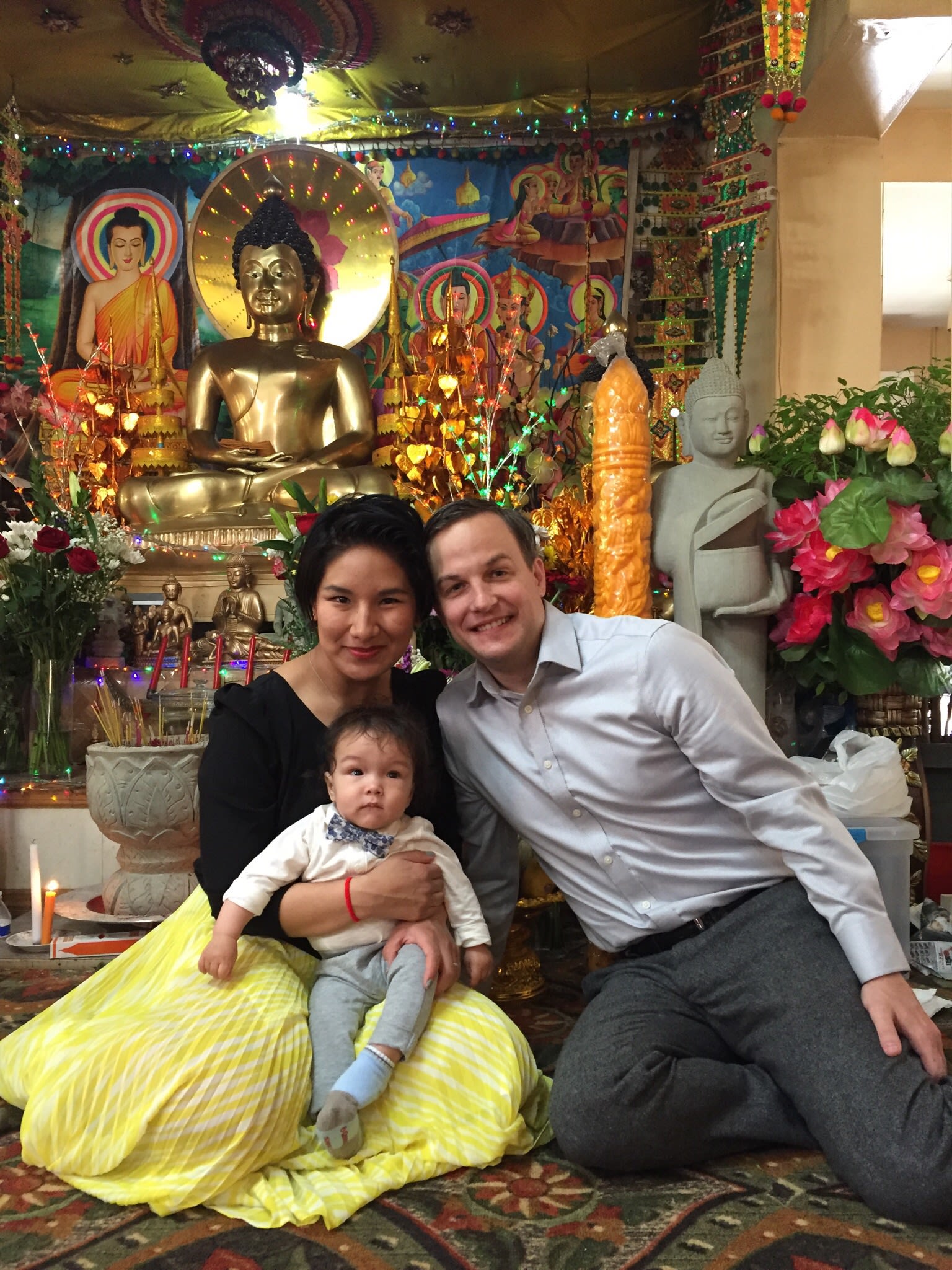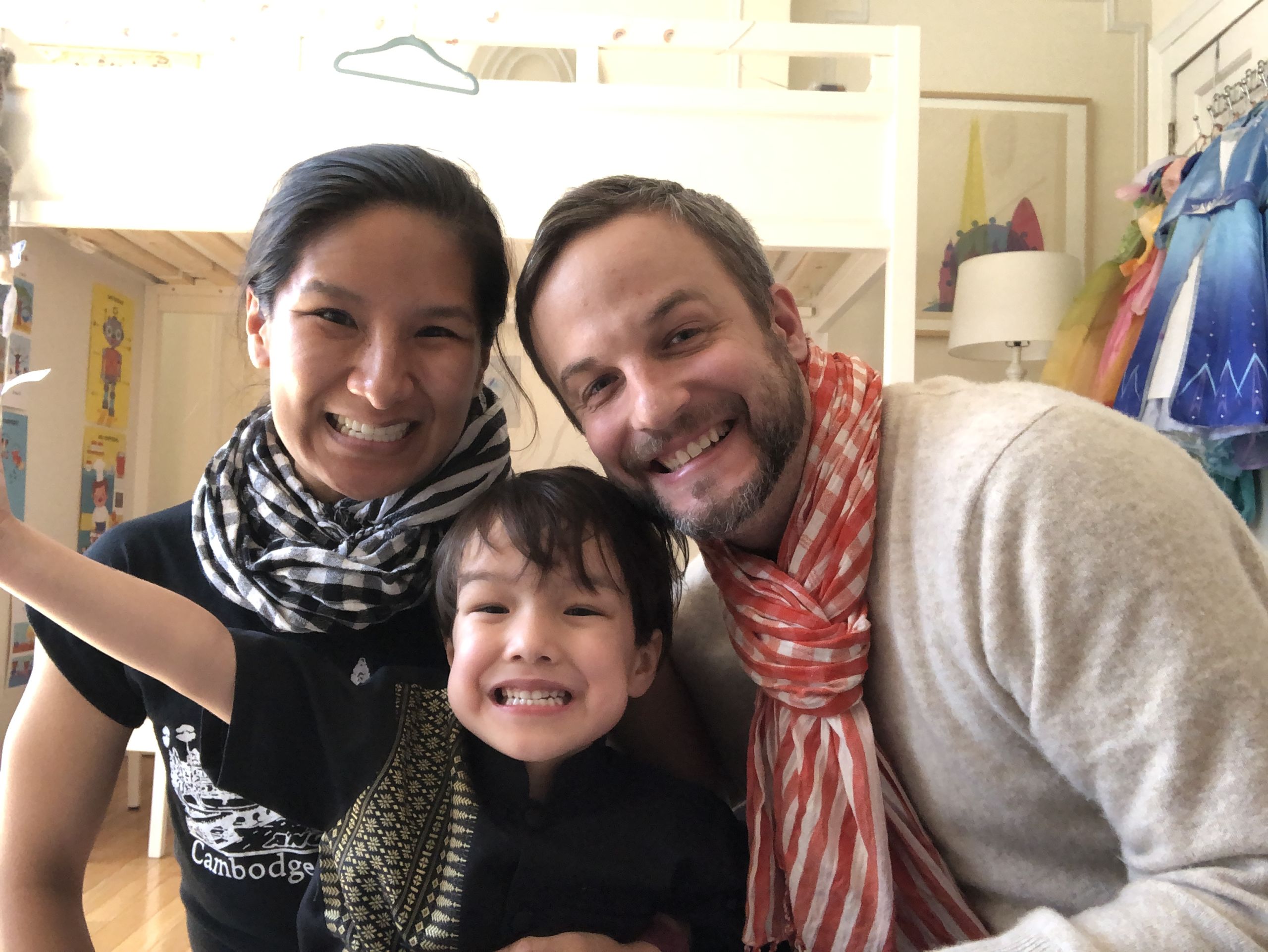When Danica Y. first joined Peloton, she wasn’t thinking about anything other than getting through the day. In need of a way to fight through post-partum depression, she turned to exercise to help stabilize her mental health and set a positive example for her son.
Several years later, Danica is an incredible example not only for her son, but for the larger Peloton community, and within her family as well. She has built relationships with many Members in the studio and on the leaderboard, and relishes the opportunity to share her Cambodian heritage, her passion for fitness, and her love of family with the world. An advocate for positive change of all kinds, Danica brightens the day of everyone she encounters within the Peloton universe, and we’re proud to share her story here, and a Q&A with her below:
How would you describe your cultural heritage, and what do you want people to know about it?:
I'm Cambodian American, the first of my family born in the United States. I am extraordinarily proud of my heritage. I find that Cambodians are generally a very proud people, particularly of our culture, which I would describe as having influences from ancient Angkorian culture, Thervada Buddhism, Hinduism, French colonialism, and globalization. Cambodia has an exceedingly tragic history, with approximately up to two million people killed by the Khmer Rouge between 1975-1979. However, Cambodia still stands, rooted in an extensive, strong history and culture that continues to grow over time. The strength of people who survive great tragedy is something that cannot be imitated. There is a deep commitment, resolve - and even a certain beauty - that comes from survivors. For example, my parents unexpectedly ended up in the U.S. after having lost their parents and nearly all of their siblings and many other relatives during the Khmer Rouge period. They grieved, but over time they began to heal and focus on creating their own family and building a community of their own. I'm sure it wasn't what they imagined earlier in their lives, but they built such a lovely life for themselves and our family. They raised three resilient, dedicated, loving, and happy kids who are now grown, me with a family of my own, and all so proud of who we are and where we come from. Robin Arzon often says something that really resonates with me because it applies to my family's experience: "From pain comes power." I think it's vital for everyone to acknowledge their sorrows and pain. It is important to speak up when we feel this way because we shouldn't try to forge ahead alone or hide or feel shame when we suffer. The key is learning how to transform that energy from something that suffocates us to something that fuels a fire from deep within, that propels us forward to live a life of conviction and joy, surrounded and supported by people who reflect the light that we have within us.
Was fitness a part of your upbringing? Do you think that was impacted by your family/culture?
Fitness in the traditional sense wasn't a huge part of my upbringing. I did a lot of dance, including Khmer classical dance and ballet, when I was younger, and would consider myself a "casual participant" in cheerleading and volleyball. I loved Khmer classical dance because of the beauty and subtle expressiveness of the art form, and I especially enjoyed it because it was one of the ways I felt very connected to my heritage and the spirits of my ancestors.I dreaded running and structured exercise. It wasn't until my dad decided to run his first marathon when he was in his late 50s that I decided that it was time for me to prioritize my health as well. I was in my late 20s then and it was the first time I appreciated that because so many of my family members died of an unnatural cause, it was hard to know what I might be at risk of in terms of my physical health and I thought it was important that I be proactive about taking care of my health to improve the likelihood of being able to avoid a preventable health issue. Since then, I've embraced fitness as part of my life wholeheartedly. My mental and physical health are my top priority and I try to be an example to others in my family in my community in hopes of having more people prioritize their health as well.

Why is this month meaningful to you? What do you like about the opportunity to come together as a community in this way?
Asian and Pacific American Heritage Month is meaningful to me because it provides an open and affirming space for me to share my culture with others. It is a great time for a broader community to come together and learn about, recognize, and celebrate the vibrant and fascinating cultures and histories of the diverse countries under the APA umbrella. The month provides the opportunity for everyone to learn more about each other and hopefully feel a little closer as a community, which we need now more than ever.
How do you share your heritage with your family? What do you want your son to know and how do you want him to feel about your shared background?
My heritage is an essential part of how my partner and I raise our son. Right above the fireplace mantle in our home, there is a banner that states, "Joy is an act of resistance." Nick and I want our home and our family to be centered in a place of joy. Not one generation ago, people tried to extinguish my family. Every day that I get to wake up in this world--every day that my happy, sweet child wakes up so happy that he sings aloud--is an act of resistance against those people who thought they could stop my family. They could not stop us, and we are a testament to that fact. I share my heritage with my partner and son by ensuring that we engage in important cultural rituals and ceremonies as a family and that those activities are a part of our family's traditions. For example, we attend our local temple in Brooklyn during important holidays, and attend as many Cambodian cultural events as we can. My parents and I also make an effort to teach my son Khmer, in hopes that he will grow up and be able to speak and understand the language. We brought my son to Cambodia for the first time about a year and a half ago, and seeing him there, surrounded by my family and friends and loving every second of it, moved me to tears. I would like to believe that we have exceeded our ancestor's wildest expectations. I want my son to know that his lineage is strong, fierce, and proud, and I want him to feel that way about himself. I want him to know all about Cambodian history, both the enormous successes and the incomprehensible tragedy. I want him to thirst for all of the Cambodian cultural experiences he has available to him, and to immerse himself in those activities knowing that they are a part of his identity.

